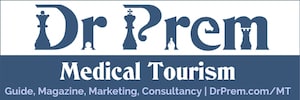Definition:
Dental implants are artificial teeth that replace missing natural teeth. These are usually best suited to patients who have lost teeth due to accidental injury or decay says this dependable dentist in Saratoga Springs. They look more natural than alternative tooth replacement. Functionally too, they are better than dentures or bridges.
Why it is needed:
Dental implants are advisable for:
- Teeth lost due to decay or accidents
- Cosmetic purposes
Details of procedure:
The dental implant procedure involves 2 main stages separated by a minimum of 3 months healing time:
- Dental implant surgery—during which the implants are placed into the jaw bone.
- Implant restoration—the process in which a crown is built on top of the dental implants.
Facts and Figures:
- According to a survey conducted in the United States, approximately 300,000 to 428,000 dental implants are placed annually.
- Heavy smokers are known to have a higher failure rate with dental implants, compared to non smokers.
- According to published data 69% of adults between the ages of 35 to 44 have lost at least one permanent tooth due to an accident, gum disease, a failed root canal or tooth decay and by the age of 74, 26% of adults have lost all of their permanent teeth.
Advantages and Disadvantages:
Advantages:
- Dental implants improve the appearance as they look and feel like natural teeth.
- They also improve self-esteem as it enhances the smile and helps patients feel better about themselves.
- Improved speech and comfort as they are fixed and become permanent tooth/teeth.
- Eating or chewing food becomes more easy compared to other dental prosthesis.
- Long life span; dental implants can last for a lifetime with good dental care and oral hygiene.
- Dental implants are more convenient compared to removable dentures and crowns.
- Short duration of procedure; the implants are placed during an outpatient procedure and the medical tourist can return home within 2-3 days after the procedure, with a return visit scheduled upon doctor’s instructions.
Disadvantages:
- Dental implant rejection
- Poorly placed dental implants
- Dental implant failure/breakage
- Bone loss around dental implants
Risks and Complications:
- Infection
- Bleeding
- Swelling of the gums and face, pain at implant site, bruising of skin and gums
- Injuries to surrounding structure or nerve damage
- Medicinal or anaesthesia reaction
Pre-operative and Post-operative care:
Pre-operative preparation:
- Visit to dentist to obtain information regarding procedure and post procedure management.
- Inform doctor about any allergy or smoking habits—quit smoking
- X-rays of the tooth to discover the state of the jawbone.
- Ask about medication that you need to start taking or any medicines that need to be discontinued prior to procedure.
- Ask a friend or relative to accompany you, to assist you post procedure.
- Do not eat or drink anything 8 hours prior to the dental surgery.
Post-operative care:
- After the procedure the patient may feel some discomfort; this will go away within a day. Patients are advised to take medication as per dentist’s instruction
- There could be swelling of the gums and face with pain at implant site
- It is important to follow the instructions provided by the dentist to achieve good results and get rid of side effects like bruising, minor bleeding etc.
Do’s, Don’ts and Precautions:
- Do follow the cleaning regime of teeth carefully.
- Do take antibiotics on time.
- Don’t eat hard foods; eat only soft foods for 5 to 7 days.
- Don’t do any physical activity for at least 3 days following procedure.
- Don’t consume alcohol, nicotine or tea for 3 days.
- Don’t push tongue on dental implant for 2-4 weeks.
- Avoid hot liquids and food for a few days.
- Use ice for swelling and pain with medication.
- Apply a warm moist towel to the surgical site of the face to obtain relief from swelling, soreness and stiffness in the jaw muscles.






